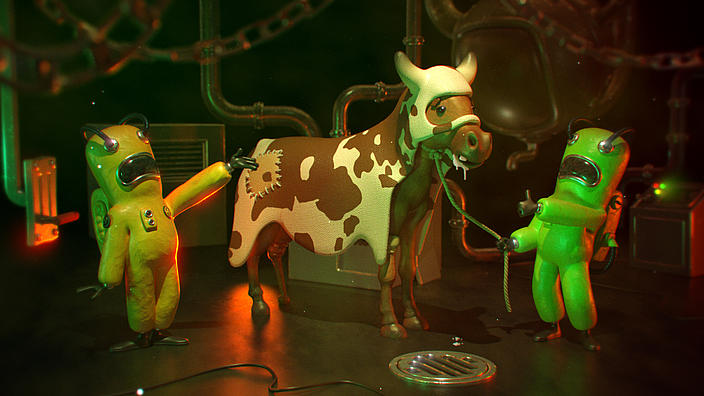The reality of fake food: foodwatch uncovers the hidden world of food fraud
- Misleading product labelling
- Transparency and food safety
Food fraud is all around us: in our supermarkets, restaurants, at the corner shop or online. Selling counterfeit, contaminated, adulterated or illegal food; giving fake designation of origin labels; creating imitation wines or fake pesticides has become a juicy business where the risk of getting caught is disturbingly low. Industry and politicians know this, but the subject is not spoken about publicly. Indeed in France, as in other Member States of the European Union, it is cleverly hidden.
This is the subject of a new book "Manger du faux pour de vrai. Les scandales de la fraude alimentaire," published in French by Robert Laffont, and available in France, Belgium and Switzerland. The book is written by Ingrid Kragl, head of investigations at foodwatch France. Supported by numerous testimonies, it details the criminal schemes in place and explains why there are too many reasons why authorities are not taking action and proposing solutions. foodwatch is therefore launching a call for action in France today, allowing citizens to ask two key French Ministers why they are not dealing with this unacceptable situation and to demand transparency. The European regulation on food (EC 178/2002) is clear: the Member States are ultimately responsible for monitoring and protecting us. However, the extent of the existence of food fraud proves that political will does not match the problem... and that is a concern for us all.
Faced with the scale of food fraud, the opacity of the French authorities - who are, if not complicit, complacent with the offenders - is unbearable. Our investigation shows the scale of food fraud. Citizens have the right to know and to be protected more effectively.Head of investigations at foodwatch France
France is not the worst country on the European map, but as a country renowned for, and proud of its gastronomy, it is nevertheless widely affected by food fraud. Reports from the fraud control authorities and European and international agencies provide examples: one out of two spices is fraudulent; 43% of honey on the market has compositional or quality defects or are falsely labelled as coming from France - some are chemically adulterated and the ingredients have never been close to a beehive. Languedoc wines are fraudulently renamed Pomerol, Margaux or Saint-Julien. One in twelve organic products checked in France is not as organic as it claims. In the region of Alpes Maritimes, the figure is as high as one in three organic products inspected.
Opacity is a political choice
On a European scale, horses that are unfit for consumption and full of medication still sneak into the food chain. One in seven pesticides is counterfeit (source: European Union Intellectual Property Office, EUIPO) and these sinister imitations of plant protection products are used in our countries. Sunflower oil priced at one euro per litre is transformed into olive oil sold at ten times the price thanks to the addition of... chlorophyll. Rotten tuna is injected with dangerous additives to look fresh and then sold as if nothing had happened. The mafia and organised crime networks have realised that food trafficking is a profitable business: there is little risk of being caught and it is a great way to launder money from drugs and other trafficking.
These few examples are far from being isolated cases. The "Manger du faux pour de vrai” survey reveals that fraud is undoubtedly getting into our fridges and cupboards. But, with the notable exception of the French wine sector, consumers are mostly ignorant of the details: which products are concerned? Which brands? Where are they sold? In what quantities?
This lack of transparency on food fraud is dangerous and has been criticised by many experts, including the Court of Justice of the European Union, which has ruled in favour of Member States communicating more transparently in "the interests of consumers, whose protection is one of the objectives pursued by food law." The current opacity fuels a climate of impunity that encourages fraudsters as much as it fuels consumer mistrust.
A European priority?
Within the European Union, the fight against food fraud is part of the "Farm to Fork" strategy published in May 2020. The President of the European Commission, Ursula von der Leyen, has tasked the Health Commissioner, Stella Kyriakides, with developing "a strategy with concrete measures against food fraud," working with EU member states and the European Anti-Fraud Office (OLAF).
What role does France wish to play in this European strategy and what role will it play in increasing transparency for citizens? What resources will it have? Will the fight against food fraud be one of France's priorities during the French presidency of the Council of the European Union from January to June 2022? foodwatch has asked these questions in an open letter to the two ministers concerned.
"It is high time to equip ourselves with the means to tackle food fraud: we need more transparency and dissuasive sanctions, but also more controls . This is a political choice. In France, and throughout the European Union," concludes Karine Jacquemart, Director of foodwatch France.
Sources and further information
- Video "Manger du faux pour de vrai" (1 minute) with the voice of Jérôme Bonaldi
- Detailed sources in "Manger du faux pour de vrai. Les scandales de la fraude alimentaire" (Robert Laffont publisher), on sale in France, Belgium, Switzerland and online
- Questions and answers on food fraud (in French)
- The control of wines and spirits: a look at recent fraud cases, DGCCRF (15/10/2019)
